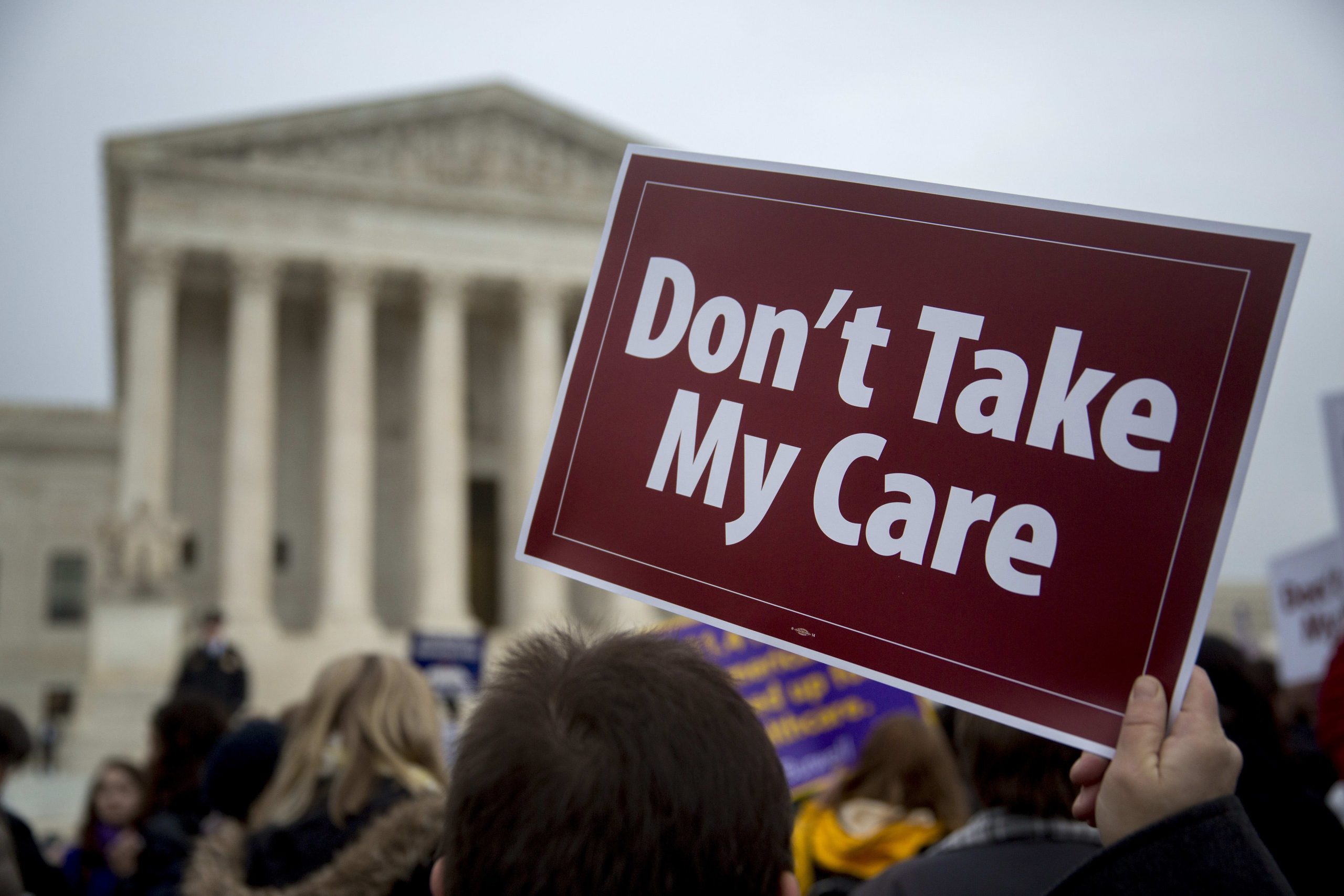Supreme Court agrees to consider Obamacare’s constitutionality for third time

A few minutes every morning is all you need.
Stay up to date on the world's Headlines and Human Stories. It's fun, it's factual, it's fluff-free.
On March 2, the Supreme Court agreed to hear a case that could result in the repeal of the Affordable Care Act (ACA) or Obamacare as it is more commonly known.
The case is the result of a lawsuit supported by President Donald Trump and the Justice Department. This will be the third time the Supreme Court has ruled on the constitutionality of the Obama-era law.
Though the case isn’t likely to be decided before the 2020 presidential election, it could still play a role in the campaign.
In recent years, popular opinion on the law has been mostly positive.

Obamacare faces repeal for the third time
The Supreme Court’s decision earlier this month to hear a third case related to the ACA provides yet another opportunity for the law to be repealed entirely.
In 2019, a New Orleans federal appeals court ruled that the individual mandate, which requires citizens to have insurance or pay a fee, is unconstitutional.
Without the ACA’s individual mandate, fewer people are compelled to sign up with the insurance exchanges. That reduces the number of healthy people in what is known as the “risk pool,” a group of people whose medical costs are combined together. As a result, insurance providers raise prices to cover their costs, which can make insurance unaffordable for many, undermining the law.
In 2012 the Supreme Court ruled 5-4 that the individual mandate was constitutional. In justifying this opinion, Chief Justice Roberts argued the fee was a tax and thus within Congress’ authority to levy.
This case, known as National Federation of Independent Business v. Sebelius, was the first time the legality of Obamacare, officially called the Patient Protection and Affordable Care Act, was determined by the Supreme Court.
Three years later, it was challenged again.
In the 2015 case, King v Burwell, the Supreme Court again upheld the constitutionality of Obamacare, this time by a 6-3 vote. The case hinged on a narrow reading of the law that argued only state-run insurance exchanges could receive subsidies, not the federal level exchanges. The majority opinion held that the law did allow for both state and federal exchanges.
Those two Supreme Court victories ensured that the law lasted throughout then-President Barack Obama’s second, and final, term.
However, Obama’s successor, Trump, has vowed to repeal the law.
Efforts to repeal Obamacare

In his successful bid to win the 2016 election, Trump promised to “immediately repeal and replace Obamacare” once he took office. On his first day in office, January 20, 2017, the new president passed an executive order meant to undermine the law.
Entitled “Minimizing the Economic Burden of the Patient Protection and Affordable Care Act Pending Repeal,” the order laid out how the new administration would approach the law until it could be officially repealed.
The order gave authority to all government officials who had responsibility or authority under the ACA “to waive, defer, grant exemptions from, or delay the implementation of any provision or requirement” of Obamacare.
Shortly thereafter, in July 2017, buoyed by Trump’s election, Republicans in the Senate attempted what was called a “skinny repeal” of Obamacare. Instead of repealing the law and replacing it with something else, the Senate action would have stripped parts of the law away, effectively dismantling it.
One of those parts was the individual mandate.
However, Republican Senator John McCain, who ran against Obama for president in 2008, supplied the deciding “no” vote that allowed the ACA to stand. His thumbs down vote essentially ended any hope of a congressional repeal of Obamacare at that time and earned the ire of Trump.
McCain died a year later after having been diagnosed with brain cancer.
Defanging the individual mandate
A new tactic for ending the ACA appeared during the tax debate in late 2017.
In a sweeping tax bill passed by Congress in December of that year, Republicans once again targeted the individual mandate. However, instead of repealing it entirely, the new bill simply got rid of the penalty for not having insurance.
That change to the law set the stage for this new Supreme Court battle. Without a fee tied to the mandate, the individual mandate is no longer a tax. Therefore, opponents of the ACA have argued, the individual mandate is no longer constitutionally based on the criteria established in the 2012 Supreme Court case.
Public opinion on Obamacare
During Obama’s second term from 2013 to 2017, public opinion of the law was generally more unfavorable than favorable. However, that started changing in 2017, with net favorability increasing and net unfavorability dropping. As of November 2019, 52% of the country favored the ACA, with 41% opposed to the law.
That trend toward favorability goes even higher when the ACA is broken down into its various parts. For instance, 82% of Americans approve of the provision allowing children to stay on their parents’ insurance until 26. Additionally, 65% approve of the Obamacare provision prohibiting insurance companies from denying coverage due to pre-existing conditions (that includes 58% of Republicans).
[article_ad]
Have a tip or story? Get in touch with our reporters here!




Comments ()